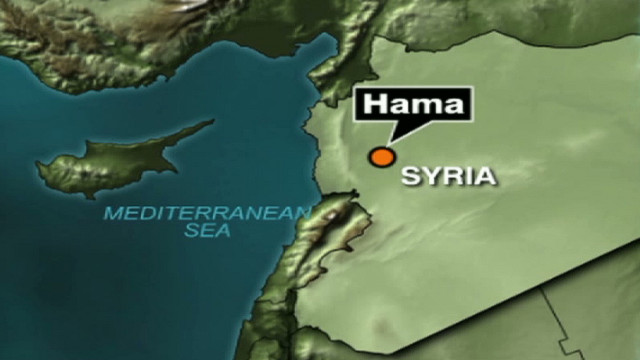
Small arms fire targeted U.N. monitors in Syria as they tried to get to the scene of another massacre, U.N. Secretary-General Ban Ki-moon said on Thursday.
No one was hit, said a spokeswoman for Maj. Gen. Robert Mood, head of the U.N. Supervision Mission in Syria.
The incident came as Ban,
international envoy Kofi Annan and others implored the U.N. General
Assembly to stop the violence in Syria, which started 15 months ago when
a tough Syrian crackdown against peaceful protesters developed into an
uprising.
The latest massacre
occurred on Wednesday in the village of Qubeir, west of Hama, and
included reports that dozens of civilians, including women and children,
were killed.
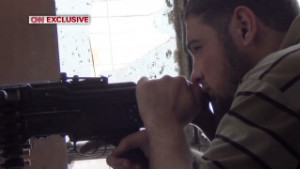
U.N. monitors had been denied access to the area but were working to get to the scene.
"I just learned a few minutes ago that while trying to do so, the U.N. monitors were shot at by small arms," he said.
Mood said observers
heading to the village to verify reports of the killings had been
blocked by soldiers and civilians. Residents told observers they would
be at risk if they were to enter the village.
"Despite these
challenges, the observers are still working to get into the village to
try to establish the facts on the ground," Mood said. "UNSMIS is
concerned about the restriction imposed on its movement as it will
impede our ability to monitor, observe and report."
Annan, the joint
U.N.-Arab League special envoy tasked with forging peace in Syria, told
assembly members Thursday that Syrians could face worse troubles if
peace isn't made.
Speaking before the U.N. General Assembly, Annan said his six-point plan isn't working and the "crisis is escalating."
"If things do not
change, the future is likely to be one of brutal repression, massacres,
sectarian violence and even all-out civil war," Annan said. "All Syrians
will lose."
The violence is
worsening and the country is becoming more polarized and radicalized, he
said. "Despite the acceptance of the six-point plan and the deployment
of a courageous mission of United Nations observers to Syria, I must be
frank and confirm that the plan is not being implemented," he added.
Annan said Arab League ministers he addressed Saturday had "offered concrete ideas on how to increase pressure for compliance."
"Clearly, the time has
come to determine what more can be done to secure implementation of the
plan and/or what other options exist to address the crisis," he said.
He spoke in the wake of
the killings in Qubeir and, two weeks ago, in Houla. More than 100
people, including women and children, were killed in Houla. Opposition
activists blamed government forces and allied militia, an assertion
denied by Syrian President Bashar al-Assad.
"Those responsible for
perpetrating these crimes must be held to account," Annan said. "We
cannot allow mass killing to become part of everyday reality in Syria."
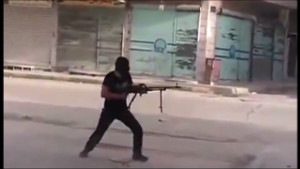
He said he urged al-Assad nine days ago to "change his military posture and honor his commitments to the six-point plan."
But Assad "believed the
main obstacle was the actions of militants," Annan said. "Clearly, all
parties must cease violence. But equally clearly, the first
responsibility lies with the government."
Though Syria has
released some detainees and there has been agreement "on modalities for
humanitarian assistance," more is required, Annan said.
Since he and Assad
spoke, "shelling of cities has intensified" and "government-backed
militia has free rein with appalling consequences."
Annan said armed
opposition forces haven't seen a "reason to respect cessation of
hostilities" and "have intensified their attacks." Referring to bombings
in Damascus and Aleppo, he said the situation is "made more complex" by
attacks that are "indicative of the presence of a third actor." Some
analysts say jihadist groups are responsible for those acts.
Annan called for
"consequences if compliance is not forthcoming," and said "a clearer
course for a peaceful transition" must be charted to resolve the crisis.
Annan was to address the Security Council in New York.
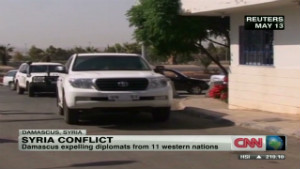
Syrian Ambassador to the
U.N. Bashar Jaafari reiterated that anti-government terrorists, and not
the regime, are responsible for the bloodshed. The government said
terrorists timed the latest massacre to coincide with the U.N. meetings
in order to make the regime look bad.
He added that Syria "is
ready to receive an investigation committee from neutral countries that
respect the U.N. charter and reject any intervention in the Syrian
affairs," according to the government's Syrian Arab News Agency.
Jaafari said Syria is
open to reform and to dialogue, and that it has no problem with the
opposition. However, he said, some opposition forces composed of outside
elements are taking up arms and have no desire for reconciliation.
Opposition activists accuse forces loyal to al-Assad of the killings at Qubeir, and they placed the number of dead at 78.
Regime forces shelled
Qubeir before militias used knives, guns and AK-47 rifles to kill
residents, the opposition Local Coordination Committees of Syria said.
About 40 victims of the
attack were buried in a mass grave Thursday, according to a youth
activist whom CNN is not naming for safety reasons. Shabiha -- or
pro-government gangs -- took other bodies to neighboring villages, the
activist said.
More than half of those killed were women and children, said a local activist who reported having carried bodies.
CNN cannot independently confirm reports from within Syria because the government limits access by international journalists.
The recent violence has revived calls to isolate the regime and toughen sanctions.
U.S. Secretary of State
Hillary Clinton, meeting Thursday in Istanbul with Turkish Foreign
Minister Ahmet Davutoglu, called the latest violence "simply
unconscionable." She reiterated the U.S. stance that al-Assad must go
and the international community must unite around a plan for Syria after
al-Assad.
Clinton said it is important to give Annan's peace initiative "the last amount of support we can muster."
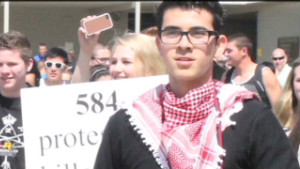
Davutoglu, whose country
has been critical of the al-Assad regime's actions, said all members of
the U.N. Security Council must work together to stop the regime's
actions.
China and Russia, regime
allies, have stressed their opposition to outside interference in Syria
while continuing to back Annan's plan. As permanent Security Council
members, the two nations have used their veto powers to block draft
resolutions against the regime.
Meeting Thursday in
Shanghai, leaders of Russia, China and four Central Asian nations signed
a statement opposing outside intervention in Syria. The statement calls
for "dialogues that respect Syria's sovereignty, independence and
territorial integrity."
The United States plans
to send a delegation to Russia this week to press for tough action
against the Syrian regime, a senior State Department official said.
At least 15 people were killed Thursday in Syria, the Local Coordination Committees of Syria said.
The United Nations for
months has said more than 9,000 people have died in Syria. But death
counts from opposition groups range from more than 12,000 to more than
14,000. Tens of thousands of people have been displaced.
No comments:
Post a Comment